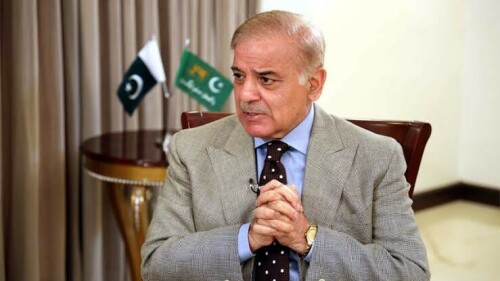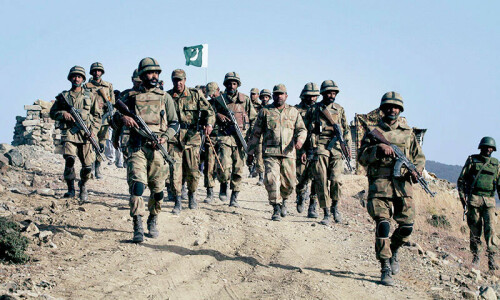WASHINGTON, May 28: The United States and Pakistan are working on a compromise formula to resolve the Nato supply routes dispute which will require the United States to rebuild the highways damaged by Nato convoys, US sources told Dawn.
In return, Pakistan will drastically reduce its demand for an increase in charges for overland deliveries of American military supplies to Afghanistan, from $5,000 to $300-500 a truck.Although Pakistan has not yet quoted a price, US defence officials have said that Islamabad is demanding up to $5,000 a truck, up from $250 per truck before the closure.
On Sunday, Defence Secretary Leon Panetta told journalists that such a steep rise was not acceptable to the United States.
Despite such tensions, the United States and Pakistan have stayed engaged with each other after the Chicago summit as well.
On Friday, Pakistan’s Ambassador Sherry Rehman met US National Security Adviser Tom Donilon and his deputies Denis R. McDonough and John Brennan at the White House and on Monday she held similar talks with US special representative Marc Grossman.
As a goodwill gesture, US Deputy Secretary of State Thomas Nides attended Ambassador Rehman’s reception for Bilawal Zardari last week with other senior officials from the State Department and the Pentagon. Usually, senior US officials do not attend reception for foreign politicians who are not in the government, like Bilawal Zardari.
Mr Nides is Washington’s point-man for the talks on Nato supply routes while Finance Minister Dr Hafeez Shaikh is leading the Pakistani side. Mr Nides and Mr Shaikh will also resume their talks on Tuesday.
Last weekend, President Asif Ali Zardari attended a Nato summit in Chicago amid hopes that Pakistan may announce its decision to reopen the routes during the conference.
Pakistan’s reluctance to do so further complicated already tense relations between the two countries. Although US President Barack Obama met Mr Zardari twice outside the conference hall in Chicago, he refused to have a formal meeting with the Pakistani leader.
US Secretary of State Hillary Clinton, however, held an hour-long meeting with the Pakistani delegation and The New York Times reported on Monday that she bluntly told a “subdued” Mr Zardari to show leadership in forging national unity to step up the campaign against militants.
“We don’t have the resources or control over these groups,” Mr Zardari was quoted by the Times as telling Secretary Clinton.
“It’s going to take leadership,” she told President Zardari. “It’s going to take leadership from you and others.”
The report said: “Mr Zardari’s visit to the summit meeting — after an 11th-hour invitation intended as a conciliatory gesture — went well for neither the United States nor Pakistan. It not only failed to resolve a six-month-old deadlock over the transportation of supplies to Afghanistan, but it also underscored the poisonous distrust and political chasms in an uneasy alliance that is central to the Obama administration’s plan to end the war in Afghanistan.”
The report quoted one Obama administration official as saying bitingly, “You have to look at the meeting in context of whether it’s worth the investment having Pakistan as a partner.” The best that the official could say of Secretary Clinton’s meeting with President Zardari, according to NYT, was that it was “not a total waste” since she was able to deliver such a pointed message.















































Dear visitor, the comments section is undergoing an overhaul and will return soon.